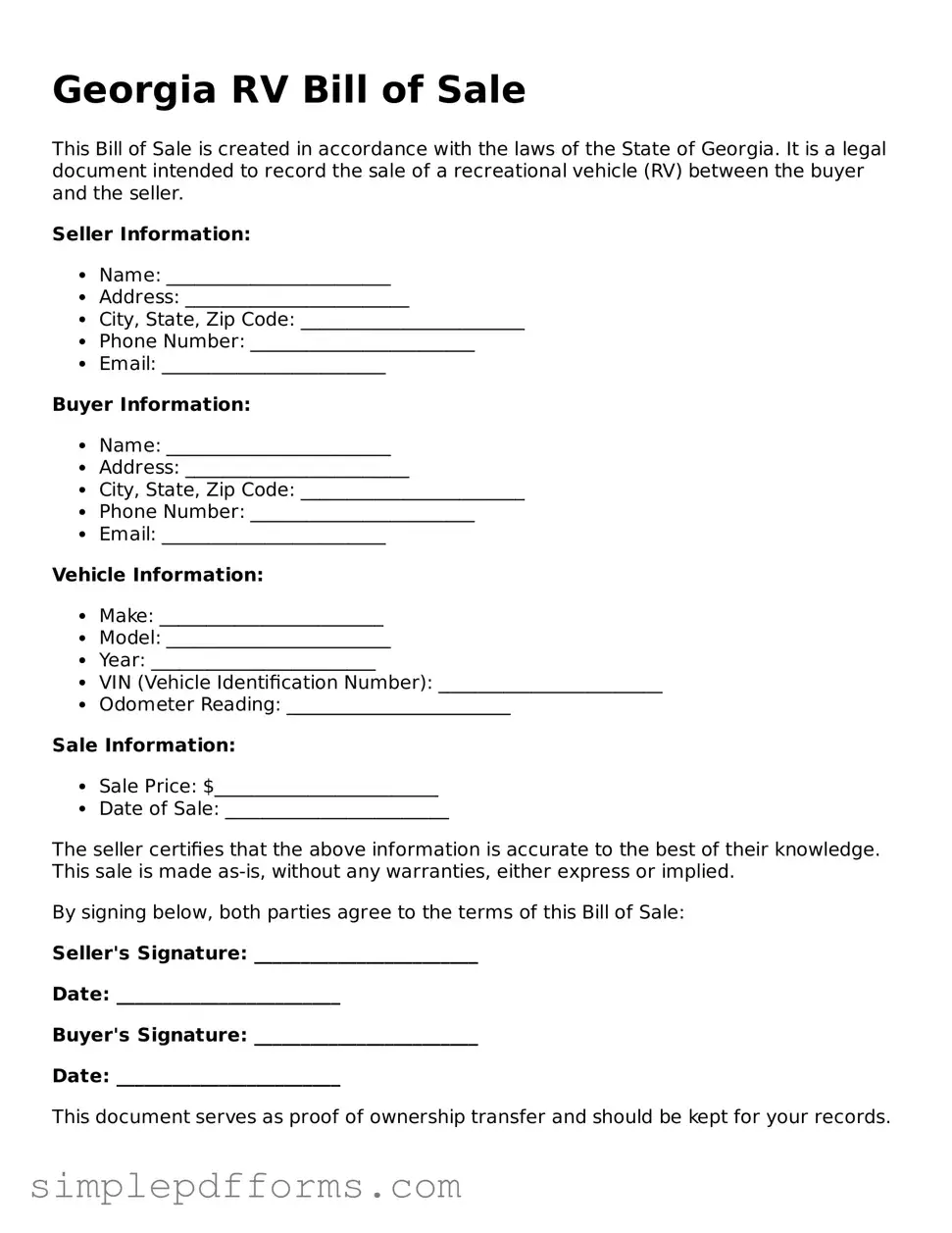Attorney-Verified RV Bill of Sale Document for Georgia State
The Georgia RV Bill of Sale form is a legal document that records the sale of a recreational vehicle in the state of Georgia. This form serves as proof of the transaction between the buyer and seller, detailing important information such as the vehicle's description, sale price, and the parties involved. Understanding this document is crucial for ensuring a smooth transfer of ownership and compliance with state regulations.
Open RV Bill of Sale Editor Now

Attorney-Verified RV Bill of Sale Document for Georgia State
Open RV Bill of Sale Editor Now

Open RV Bill of Sale Editor Now
or
Get RV Bill of Sale PDF Form
Your form is waiting for completion
Complete RV Bill of Sale online in minutes with ease.